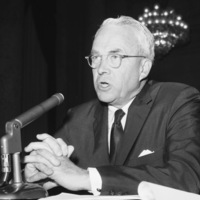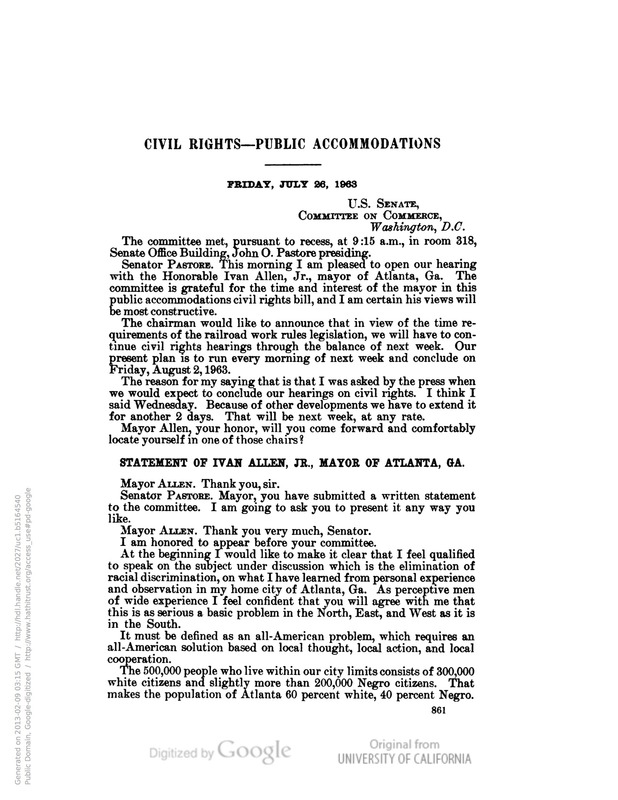In 1963, the United States was reaching a crisis in the Civil Rights movement. Violence was increasing, and frustration with the slow pace of securing basic human rights was evident in many cities including Atlanta. Birmingham, Alabama saw excessive brutality when police dogs and blasting water hoses were used against civil rights demonstrators in April 1963; a white supremacist murdered Medgar Evers, the NAACP state leader in Mississippi, in June 1963; the March on Washington to rally for civil rights, at which Martin Luther King, Jr. gave his "I Have a Dream" speech, took place in August; and the horrendous bombing of the Sixteenth Street Baptist church in Birmingham, which took the lives of four young African American girls, occurred in September.
Atlanta, compared to other cities, remained calm during that year although the student movement and the Black leadership's demands for more change came repeatedly. Mayor Ivan Allen, Jr. wanted to respond to the growing unrest in the city because he knew very well, as he expressed during his 1961 election campaign that "I could promise all I wanted about Atlanta's bright, booming economic future, but none of it would come about if Atlanta failed to cope with the racial issue." Well aware of the turmoil in Birmingham and other American cities, Allen wanted to make sure Atlanta avoided that unrest and was moved to a more racially liberal position, he said, "as a reaction against the totally irrational and irresponsible acts of the white racists around me." As a result, he began to speak to this issue by hiring the first Black firemen, desegregating theaters and city swimming pools, and, most importantly, for the national scene, in July 1963, becoming the only southern mayor to testify in favor of the desegregation of public accommodations which was to be the heart of the 1964 Civil Rights Act. Allen was brought to this point not only by unease about Atlanta's future growth but by his own moral concerns. He felt this was the right course of action even if it might cost him reelection and even if he received numerous death threats. This testimony put Allen at a national leadership position in civil rights and placed Atlanta at the center of those cities that would take a pragmatic stand on the civil rights changes. Within the context of America in 1963, Allen's effort was courageous and unprecedented: the mark of a true leader.
Synopsis by Ronald Bayor, Professor Emeritus of History, Georgia Tech
*** Below is the first page of Ivan Allen Jr's testimony before the Senate Commerce Committee. Click the image for the complete document (8.6MB download). Or browse other items in the collection.


